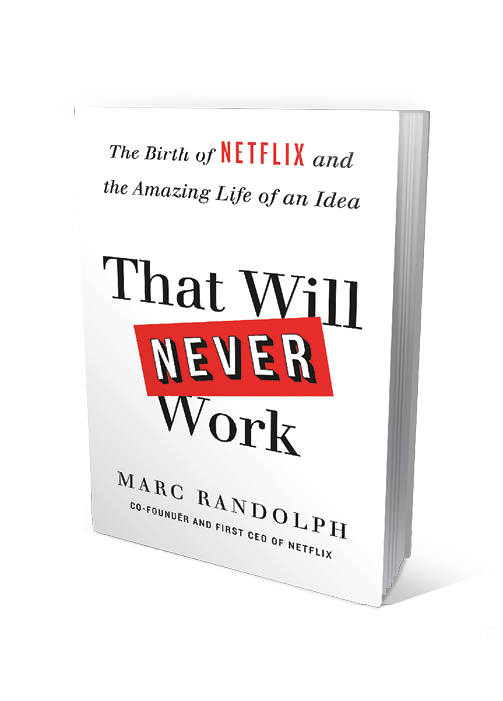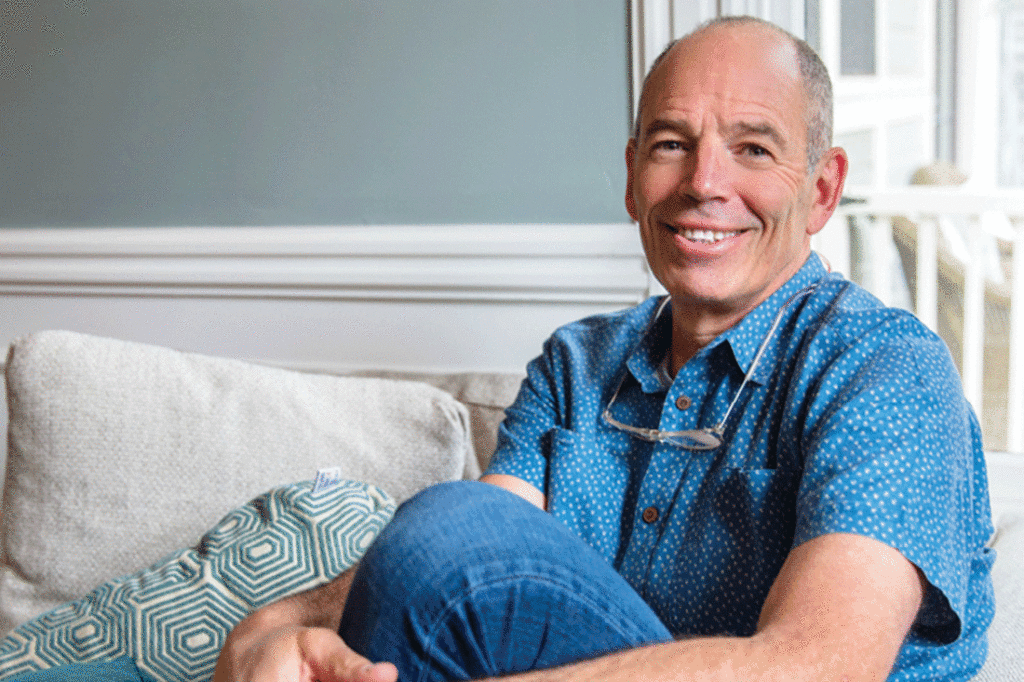The offer from Amazon’s Jeff Bezos was in the low eight figures—not bad for a startup just two months removed from launch and hemorrhaging money. Still, the founders’ decision not to sell was easy.
Difficult was the call to pivot away from the part of the business bringing in 99 percent of its revenue: Going forward, the singular focus of Netflix would be renting DVDs. No more selling them. Stunningly, CEO Marc Randolph needed just a couple of minutes to convince his co-founder Reed Hastings of going all-in.
“If there’s one idea I’m most proud of, that’s it,” Randolph says. “To double down doesn’t sound practical, but my thinking was it would increase our odds to get the rental idea right.”
Perhaps this first pivot even made Netflix’s later decision to lean into digital streaming all the more easy. While it was by no means an overnight success, as many might assume 20-plus years removed, Netflix has become one of the most influential companies of our time. Yet Randolph, who served as the CEO for nearly two years and left the company in 2002, has been mostly forgotten by history. He calls himself “the Steve Wozniak of Netflix,” without any bitterness.
His tell-all book, That Will Never Work: The Birth of Netflix and the Amazing Life of an Idea, hits shelves in September. It serves as an in-the-trenches history of the early years, when on more than one occasion a make-or-break decision could have led to Netflix’s obituary.
The book title represents the four words Randolph heard often, even from his own wife, during the formative years. His original idea of renting VHS tapes wouldn’t have worked—too expensive and too much risk of damage in the mail. The timing of DVDs going mainstream was among the fortunate breaks the company enjoyed en route to more than 150 million current customers.
“If only they could have seen our first tiny office—dirty green carpet, we’re all sitting in beach chairs. We overcame so much adversity and I think that’s what I wanted to share in the book, the story of how we became Netflix.”
In the years since Randolph’s exit, Hastings has thrived as the company’s CEO. The two remain friends.
“I’m proud of the courage and insight it took to get out of the way,” Randolph says. “Reed was and is better than me as a CEO. We compromised remarkably well, and I take pride in that. That’s more important than who gets credit.”

That Will Never Work is less a textbook on startup success than a fun tripdown memory lane, complete with Randolph’s favorite stories. It includes the one from 1998, during the Bill Clinton/Monica Lewinsky scandal. Netflix sold copies of Clinton’s four-hour deposition, and the fiasco of having the DVDs shipped quickly was chaotic. The promotion drew more than 5,000 new customers and a ton of free national press coverage. But somehow one of the spindles of DVDs didn’t have Clinton’s testimony. In its place was an adult film, a pretty raunchy one at that. The company sent a letter to everyone who purchased the video and offered to exchange it at Netflix’s expense.
“But you know? Funny thing. Not a single person did,” Randolph writes.
The most surreal story in the book takes place at Blockbuster’s corporate offices in 2000. The one-time movie rental giant called with an inquiry about purchasing Netflix outright. But Hastings and Randolph were literally laughed at for the $50 million they asked for. Of course, Blockbuster, once ubiquitous in shopping centers around the country, is now all but out of business.
Having been a party of the plucky, nimble upstart, Randolph was not surprised to see Blockbuster on the wrong side of a catastrophic disruption.
“Every established business struggles with this,” he says. “We were tiny, doing $5 million in revenue to their $6 billion. We talked with them several times down the road, and they always said no.”
Before leaving the company in 2002, shortly after Netflix went public, Randolph’s final assignment was a three-month project testing a movie rental kiosk with Mitch Lowe. Hastings passed on the idea that Lowe later turned into Redbox. Since that time, the 61-year-old Randolph, who cashed in the majority of his stock, has served on several boards, mentored numerous young entrepreneurs and started a few more companies.
“Everyone sees this behemoth company now,” he says. “If only they could have seen our first tiny office—dirty green carpet, we’re all sitting in beach chairs. We overcame so much adversity and I think that’s what I wanted to share in the book, the story of how we became Netflix.”










